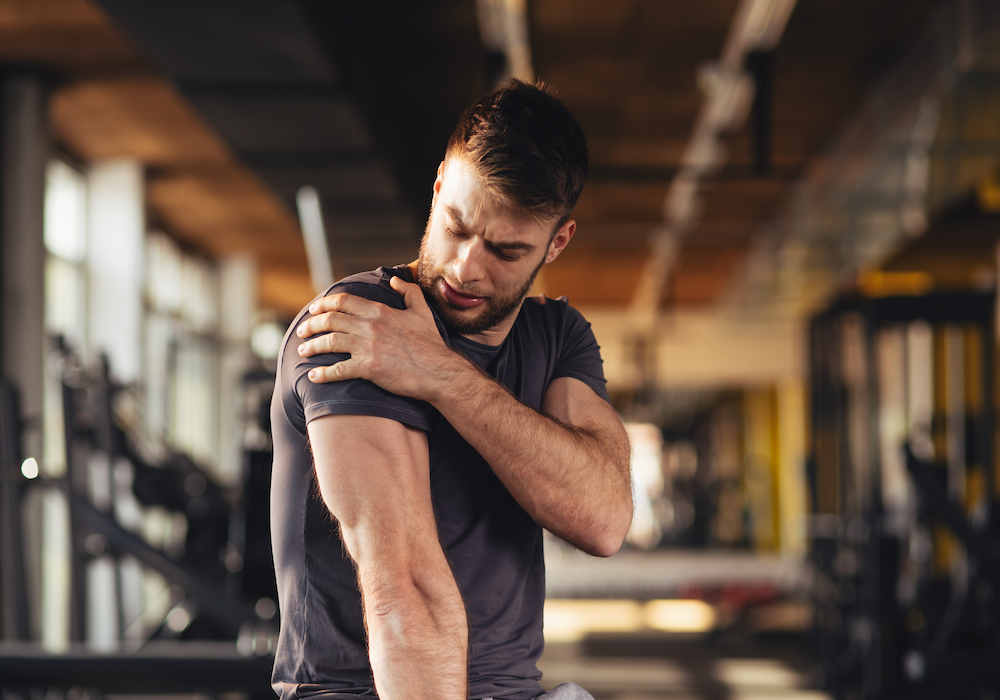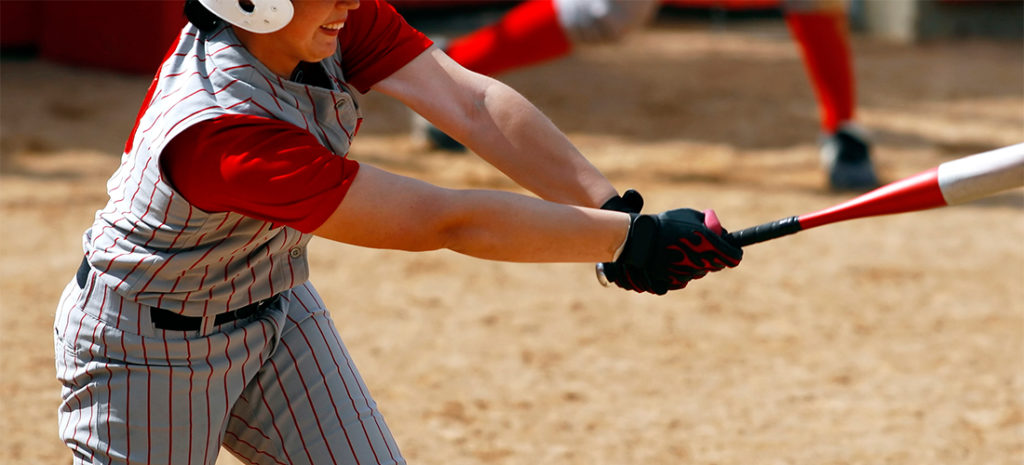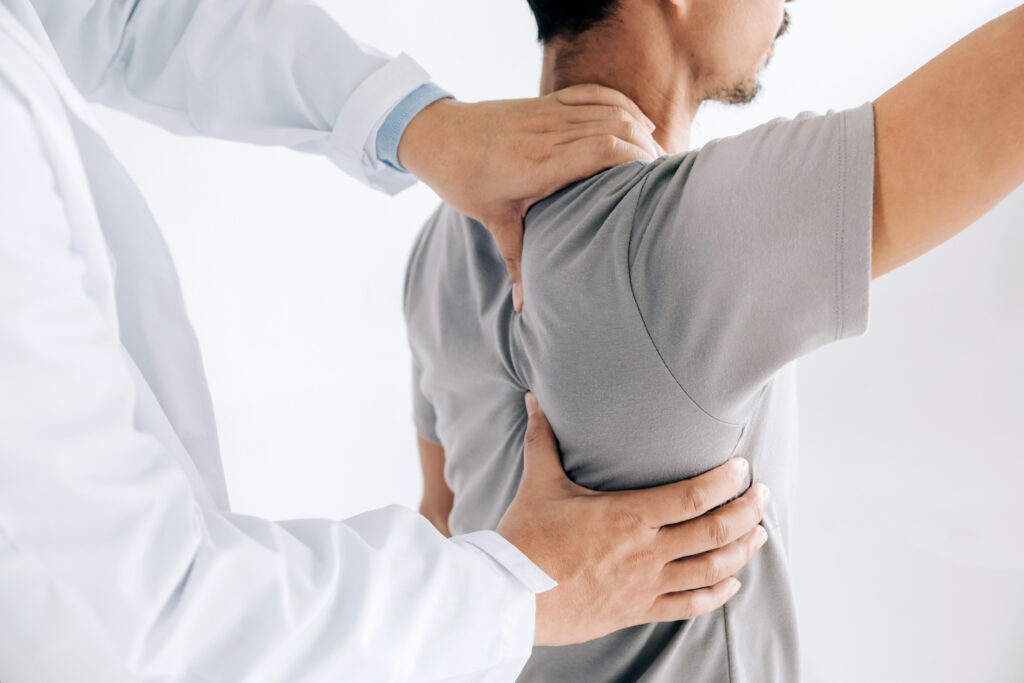Shoulder tendinopathy refers to any shoulder tendon injury, whether it’s chronic or acute. These types of injuries are usually caused by overuse
In this blog article, we’ll discuss the different types of shoulder tendon injury, what causes them, and when to see a doctor for treatment.
Types of shoulder tendinopathy
There are two types of shoulder tendon injury:
Tendonitis
Tendonitis occurs when overuse causes tendon wear and inflammation. This is an acute shoulder tendon injury, meaning the pain is immediate, but it’s easily treated and damage is not permanent.
Tendinosis
Tendinosis happens when your tendon begins to degenerate and small tears appear in the tissue. This shoulder tendon injury is more serious and brought on by chronic overuse or a sudden force that overloads the tendon.
In most cases, the shoulder condition begins as tendonitis and turns into tendinosis when left untreated.
Shoulder anatomy
To understand what causes a shoulder tendon injury, it’s helpful to know about the different parts of the shoulder and how they work together.
Two joints make up the shoulder:
- The acromioclavicular joint connects your shoulder blade to your collarbone and allows you to raise your arm above your head.
- The glenohumeral joint is a ball and socket joint. It gives you the ability to rotate your shoulder in a circle and move it up and out from your body.
Soft tissue like ligaments, cartilage, and tendons surround your glenohumeral joint. They help cushion the joint’s movement and keep the large humeral head in the shallow socket cavity.
Your rotator cuff is a group of tendons and muscles surrounding the top of the humerus to keep the head in place and allow your arm to rotate.
The deltoid muscle is the largest and strongest muscle in your shoulder. Tendons attach it to the clavicle and humerus and it provides you the strength to lift your arm.
Your bicep tendon connects the muscle on the front of your forearm to the top of your shoulder socket and allows your forearm to rotate and your elbow to bend.
What causes shoulder tendon injury?
Tendinopathy is commonly caused by overuse. Repeated movements like reaching over your head or throwing a ball are examples of overuse.
Your rotator cuff is the most common area for a shoulder tendon injury because it gives your arm the ability to move in a circular motion. Repeated arm rotation often causes a rotator cuff tear in baseball, softball and volleyball players.
Other less likely causes of shoulder tendon injury are the presence of shoulder arthritis or other diseases causing shoulder inflammation. A sudden fall or force to the shoulder could also cause strain on the tendons.
What are the symptoms of shoulder tendinopathy?
There are many different shoulder pain causes and various symptoms associated with shoulder tendon injury. Here are a few of the most common:
- Pain in the front of your shoulder
- Shoulder pain when reaching behind your back
- Shoulder pain when lifting your arm
- Shoulder pain at night when sleeping on your injured side
- Shoulder pain that is worse with use
- Shoulder weakness
- Shoulder stiffness
- Inflammation (tendonitis)
- Loss of range of motion
- “Clicking” sound when you raise your arm
When should I see a doctor for shoulder tendon injury?
If you are experiencing pain or stiffness or you notice inflammation in your shoulder, you should make an appointment with a shoulder doctor.
To determine whether you have a shoulder tendon injury, your physician will ask you for a complete medical history, have you describe your symptoms and conduct a physical examination.
X-rays or MRIs may be necessary to confirm the diagnosis and determine if there are other problems.
Make an appointment with a shoulder specialist
How do you treat a shoulder tendon injury?
Shoulder tendinopathy will not heal on its own if you continue the activity causing it. Treating a shoulder tendon injury will include resting the affected tendon until your pain subsides.
Your shoulder doctor will begin by prescribing nonsurgical treatment, which will reduce pain and improve function. These treatments include:
- Rest from all current activities
- Ice the inflamed or injured tendon
- Use heat to decrease stiffness
- Over the counter pain relievers
- Physical therapy exercises to increase range of motion
- Tissue and cell therapies*
- PRP injection*
- Stretching
- Surgery (tendinosis)
Learn more about OrthoIndy shoulder treatments
As a last resort for a shoulder tendon injury, your physician may suggest surgery. Your surgeon will perform your surgery arthroscopically, meaning they will make two small incisions and use a camera to repair your tendon.
*To avoid surgery, new studies show PRP and tissue and cell injections are an effective treatment to help ease pain caused by tendinopathy. Ask your physician if you’re a candidate for these orthobiologic therapies. These injections are not guaranteed to take effect, but when they work, they may help decrease pain and improve function.
Find out what’s really causing your shoulder pain
If your shoulder pain causes you to miss out on normal day-to-day activities, we can help. Request an appointment online or call OrthoIndy at 317.802.2000 to book an appointment with one of our shoulder specialists.
If your shoulder injury or condition is recent, you can walk right into one of our OrthoIndy Urgent Care locations for immediate care. For rehabilitation and physical therapy, no referral is needed to see one of our physical therapists.





